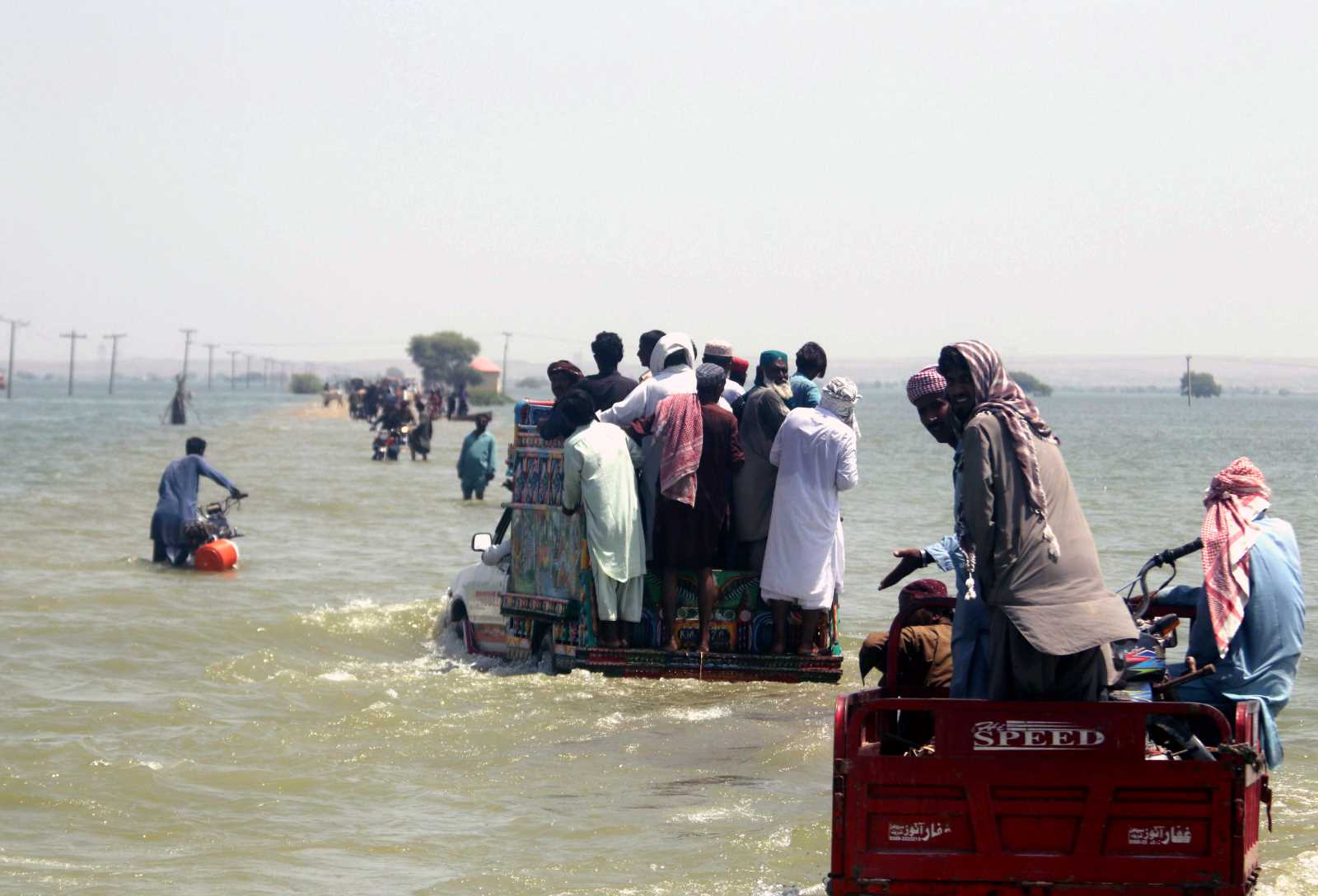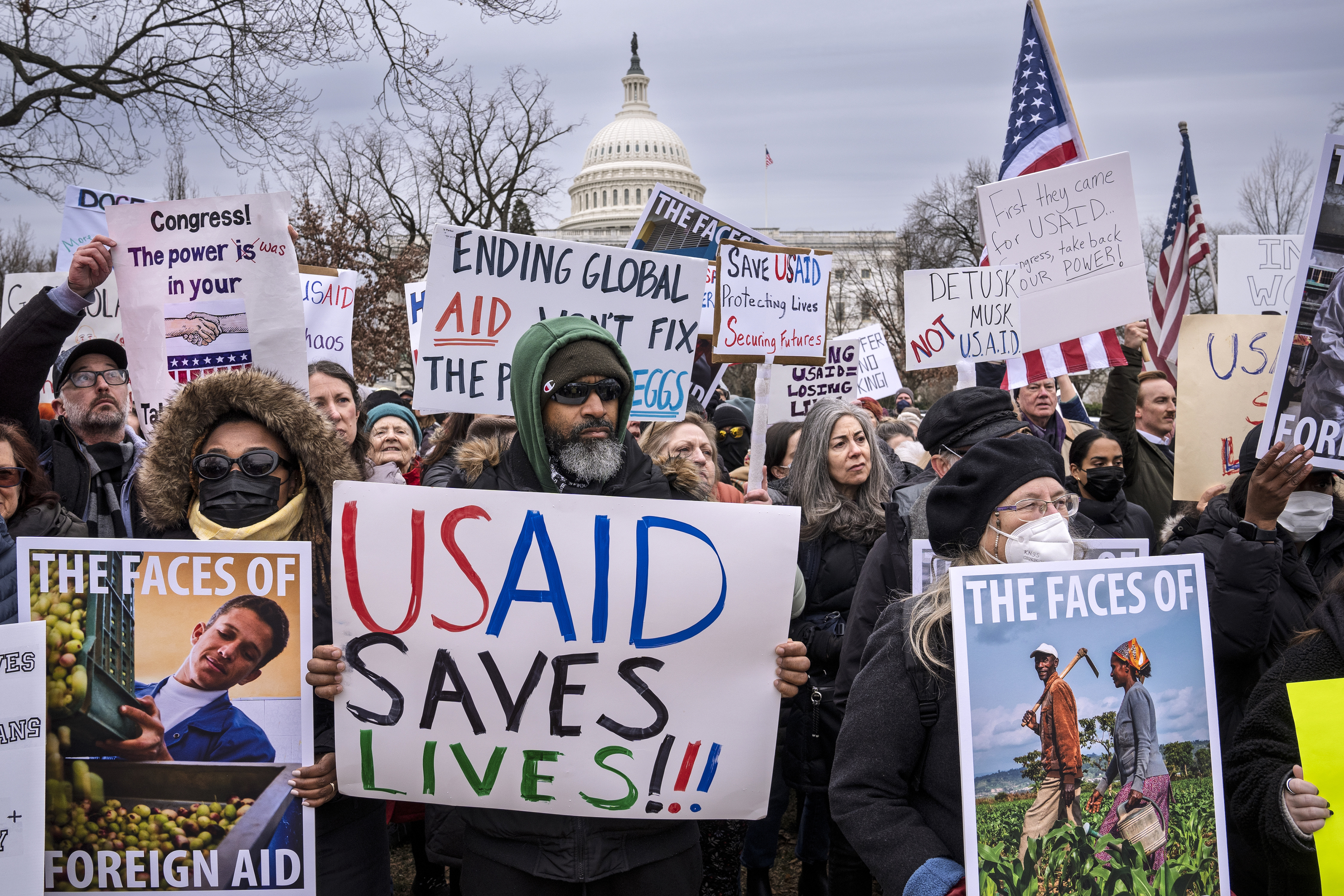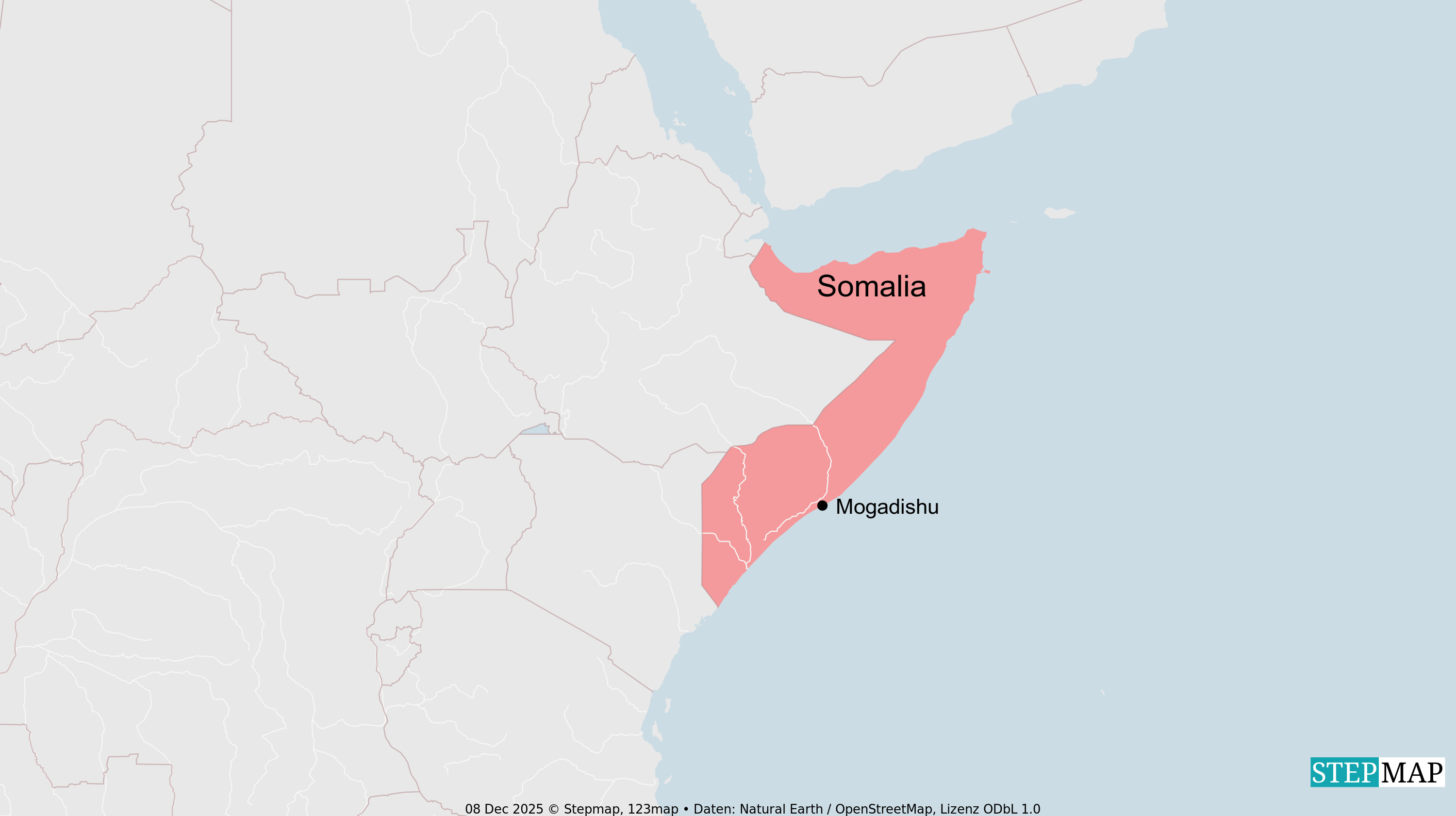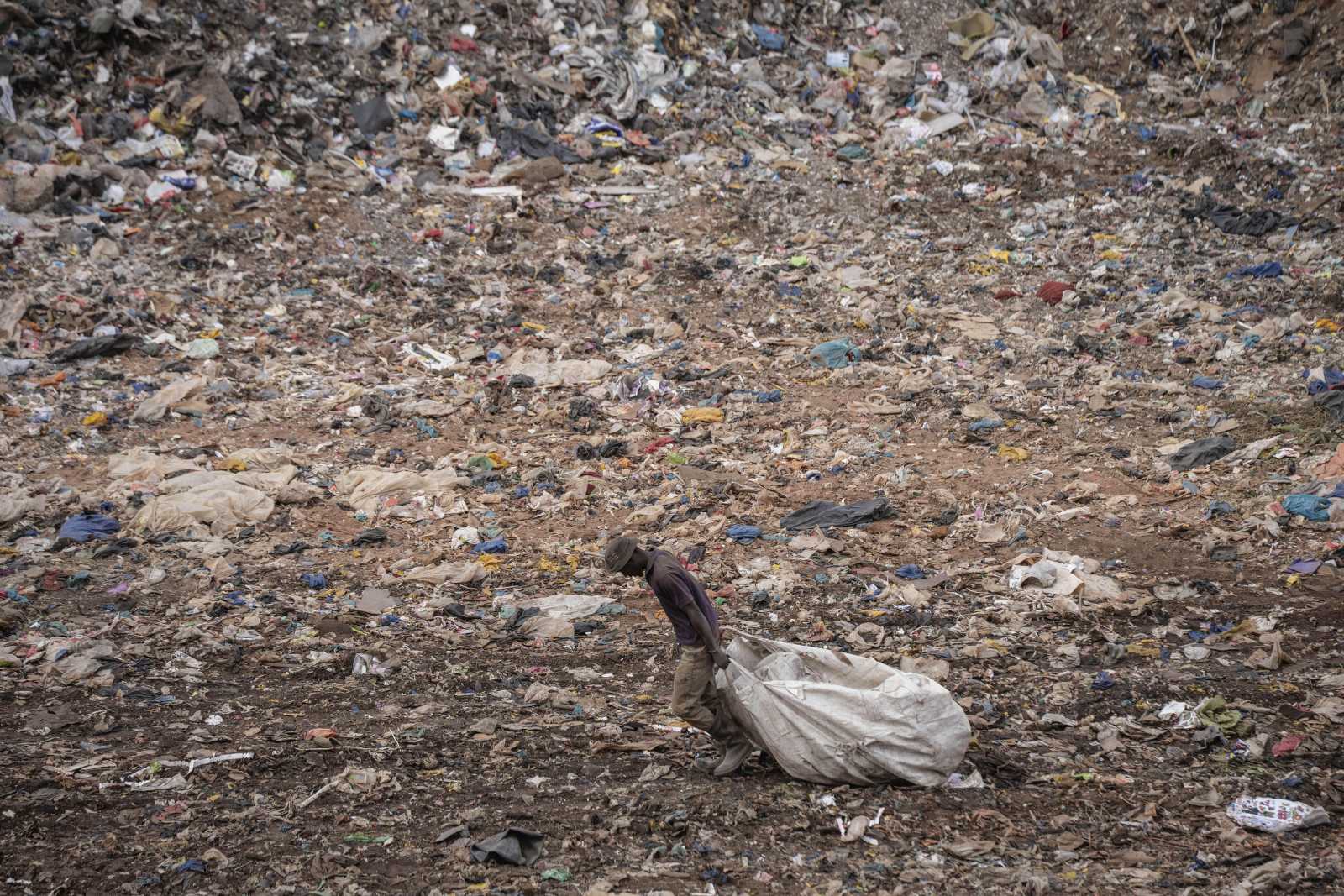Adaptation
Despite disaster, climate action is lacking
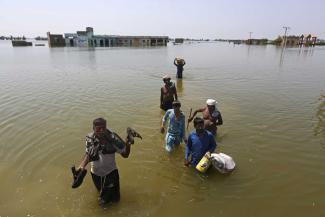
Pakistan was the country most affected by climate-related extreme weather events worldwide in 2022, according to the latest Climate Risk Index (CRI), which is published by the German civil-society organisation Germanwatch. The index analysed more than 170 nations around the world. Pakistan topped the list mainly because of its “exceptionally high relative economic losses”. Germanwatch acknowledges, however, that the country’s economic losses were also high in absolute terms, as was the number of affected people.
In 2022, Pakistan was devastated by floods, landslides and storms due to a heavy monsoon season that resulted in torrential rainfall. The 2022 floods are considered the worst in the country’s history. They affected more than 33 million people, cost more than 1700 lives and caused economic damages of nearly $ 15 billion, Germanwatch writes with reference to data from the Centre for Research on the Epidemiology of Disasters. Post-flood challenges included a lack of drinking water, a rise in water-borne diseases, malaria outbreaks and skin infections.
Scientists who link extreme weather events to climate change say that the majority of models and observations show that intense rainfall has become heavier as Pakistan has warmed. Some models, they report, suggest that climate change could have increased the maximum rainfall intensity in the worst-hit provinces, Sindh and Balochistan, by up to 50 %. According to the Pakistan Meteorological Department, the country witnessed 243 % more rainfall than usual in August 2022, making it the wettest August since 1961.
In addition to catastrophic rains, Pakistan also witnessed intense heat from March to May 2022. Temperatures reached more than 49 degrees Celsius in some parts of the country. The heatwave “led to rapid glacial melting in northern Pakistan, which likely contributed to the floods,” says Sher Muhammad, cryosphere specialist at the International Centre for Integrated Mountain Development (ICIMOD). Scientists claim that climate change made the heatwave more likely, too.
Self-reliance instead of blaming the West
In the face of such devastating extreme-weather events, some Pakistanis point to the fact that the country’s population has contributed little to the climate crisis but is suffering immensely from climate impacts. They argue that Western industrialised countries and China have caused a significant portion of the world’s greenhouse-gas emissions and thus bear responsibility for damage caused by a warming planet – including in Pakistan.
While this is factually correct, some experts argue that developing countries such as Pakistan should not expect much support from richer countries when it comes to tackling the consequences of climate change. One of them is Tariq Banuri, Professor of Economics at the University of Utah, U.S., and member of the Pakistan Climate Change Council. “The media as well as policymakers tend to use these reports to lament the country’s vulnerability and guilt-trip the West for not providing badly needed aid for climate adaptation and damage compensation. This was never a winning strategy, but recent events have rendered it particularly meaningless and irrelevant,” he says.
Banuri refers to the fact that political opinion around the world has been shifting to the right, even the far right, in recent years – especially in Western countries. This shift, he argues, has coincided with changes in global governance, including the dismantling of the international aid system and growing isolationism. “Self-reliance has re-emerged as the optimal strategy for poorer countries,” he concludes. “The dismantling of USAID has to be seen as a culmination of a long period of right-wing dissatisfaction with international obligations. Some other donor countries have also indicated their intention to scale back their aid portfolios.”
Since the climate crisis will be a reality for a long time to come – no matter what action the global community takes in response – poor countries should “assess how to live with climate change, how to prosper in a world defined by climate change,” Banuri argues.
Being better prepared
The prerequisite for prospering is to ward off the worst climate impacts, however. For Pakistan, this means ensuring that the country will be better prepared for disaster in the future than it was in 2022. “The losses could have been reduced if (the national) Flood Protection Plan-IV had been developed and implemented on time,” says Aisha Khan, chief executive of the Civil Society Coalition for Climate Change (CSCCC), a Pakistani consortium of organisations with the aim to promote climate action. At the same time, she acknowledges that no one can be fully prepared for “something that is not quantifiable and exceeds forecasts by two to three hundred percent”.
Khan suggests that Pakistan should implement several policy measures to better adapt to climate change. She laments that while the country has developed a National Adaptation Plan, it lacks the means to implement it. “As the prime responsibility for adaptation falls on the provinces, it is important to work closely with the provincial governments and help them to develop detailed Provincial Adaptation Plans,” Khan says.
While she finds that attributing losses and damages to climate change, calling for climate justice and relying on external finance is a “good negotiating strategy”, Aisha Khan points out that it will not provide immediate solutions to the country’s humanitarian crisis. “Pakistan has to start implementing the policies it has developed on water, food and energy,” she says. She also urges policymakers to take measures to reduce the current population growth rate, empower women and make access to services more equitable. “The social and economic inequities in our society are going to explode when the survival of the majority is threatened by the dangers of climate change,” she warns.
Putting pressure on policymakers
One reason why measures relating to climate change have not yet been implemented more effectively is that Pakistanis obviously consider other issues more important. Aisha Khan criticises this attitude. “While overall awareness of climate has increased in the last decade, the masses in Pakistan don’t put adequate pressure on policymakers to implement existing policies. The main reason behind this disconnect is low levels of interest in environmental issues and a high level of interest in politics, political parties and their agendas of rivalries. The media also does not give prime time to the climate, as the topic itself is of little interest to viewers,” she says.
One way to engage people in climate and environmental issues could be to present them in a more appealing way. “Clearly climate change advocacy needs a strategy that resonates with people and doesn’t simply share technical data and information,” Khan says.
The start of the 2025 monsoon season is a stark reminder that Pakistan’s national and provincial leadership should swiftly mobilise resources for more climate action. Vulnerable communities should be protected, and infrastructure needs to be made more resilient to climatic impacts. Even if Pakistan cannot prevent disasters like those in 2022, policymakers at least have a duty to minimise the damage.
Links
Germanwatch: Climate Risk Index 2025.
https://www.germanwatch.org/en/cri
World Weather Attribution, 2022: Climate change likely increased extreme monsoon rainfall, flooding highly vulnerable communities in Pakistan.
https://www.worldweatherattribution.org/climate-change-likely-increased-extreme-monsoon-rainfall-flooding-highly-vulnerable-communities-in-pakistan/
Syed Muhammad Abubakar is an environmental journalist from Pakistan. He is currently pursuing a PhD in Communication at George Mason University, US.
s.m.abubakar@hotmail.com
X: SyedMAbubakar
This story is part of The 89 Percent Project, an initiative of the global journalism collaboration Covering Climate Now.

